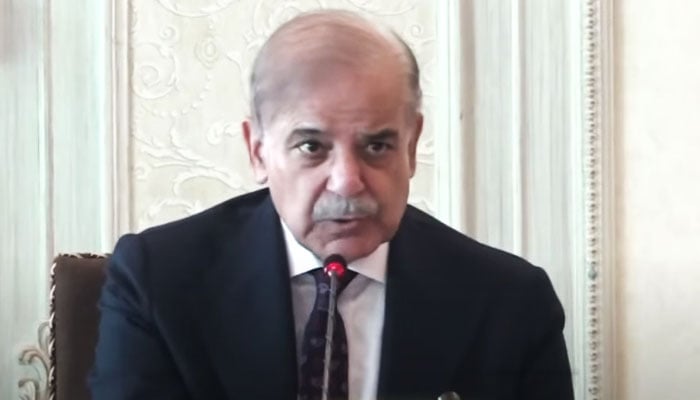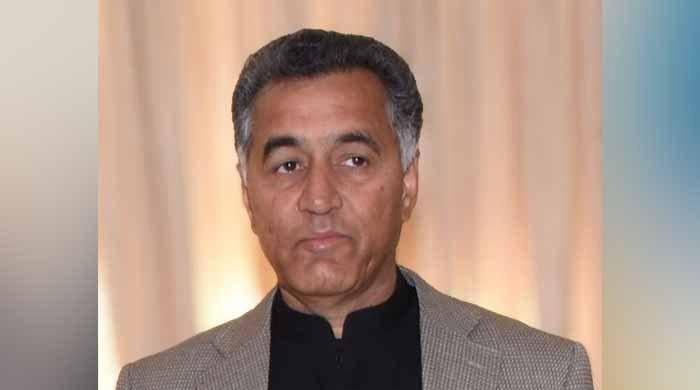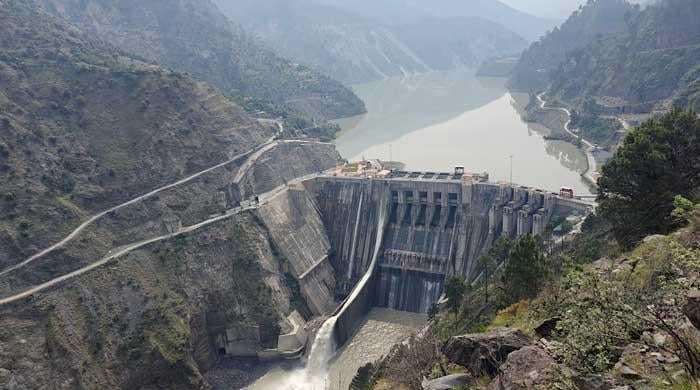PM says 5 IPPs 'voluntarily' ending contracts with govt, saving consumers Rs60bn a year
Revision of agreements with other IPPs will gradually lower tariffs, create fiscal space of Rs411bn annually, says premier
October 10, 2024

- Premier says five IPPs chose national interest over their own.
- Lauds efforts of task force established for power sector reforms.
- IPPs include Hubco, Lalpir, Saba Power, Rousch Power, Atlas Power.
Prime Minister Shehbaz Sharif said on Thursday that five independent power producers (IPPs) have "voluntarily" agreed to cancel their power purchase agreements with the federal government, providing Rs60 billion in annual relief to inflation-hit consumers, following extended talks with the authorities.
"By voluntarily agreeing to terminate their contracts prematurely with the government, these five IPPs prioritised the nation's interests over their own," the premier said addressing the Cabinet.
"The "take or pay" contracts with the five independent power producers have been fully terminated, and they will only receive the outstanding amounts owed by the government, without any interest."
The federal government has been under immense pressure to reconsider its power purchase agreements (PPAs) with the IPPs following outcry across the country as the addition of capacity payment charges inflated the power bills beyond the affordability of the inflation-burdened masses.
The PM said that in the first phase, five IPPs were ending deals with the government; however, revision of PPAs with other IPPs would gradually lower the tariff further, saving the national exchequer Rs411 billion a year, creating more fiscal space for the cash-strapped country.
PM Shehbaz said: “The rate of inflation was more than 30% [in the same month during the previous year], it now stands at 6.9%.”
The prime minister commended the five IPPs, stating they were the first raindrops in the effort to bring relief to the public.
An official, who was part of the task force on the power sector, told The News that the modalities were being settled, and once finalised, all five IPPs would sign the documents to terminate the contracts.
The development came after PM Shehbaz's administration, last month warned the IPPs' owners of "consequences" over failure to voluntarily terminate the power purchase agreements (PPAs).
“The entire cabinet, including me, is grateful to these IPP owners,” he added, further mentioning that the task force established for the reform of the power sector and the members of the federal cabinet deserve praise for this effort.
He also highlighted the record increase in remittances from overseas Pakistanis. “Record remittances of $8.8 billion in the last quarter reflect the confidence of overseas Pakistanis in government policies.”
During the cabinet meeting, the details of the agreement between the task force and the owners of the IPPs — including Hubco, Lalpir, Saba Power, Rousch Power, and Atlas Power — and the process of concluding the agreements with them were presented before the cabinet.
Out of these IPPs, Rousch Power was established under a build-own-operate-and-transfer agreement, which will be privatised by the Privatisation Commission after the transfer of its ownership to the government.
The ownership of the other four IPPs will remain with their owners, while no payment will be made by the government after the termination of the contract.
Govt power deal ends prematurely, says Hubco
Meanwhile, the country's biggest private utility, Hub Power Company Ltd, unveiled on Thursday the premature termination of a pact for the government to buy power from its generation project.
The government and market operator the Central Power Purchasing Agency (CPPAG) agreed to settle the company's outstanding receivables up to Oct 1, it told the Pakistan Stock Exchange in a notice.
Last month, Minister for Energy (Power Divison) Awais Leghari stated that the government was re-negotiating deals with independent producers to rein in electricity tariffs as households and businesses buckle under soaring energy costs.
The company said its board approved an accelerated expiry date of October 1 for the deal, instead of an initial date of March 2027, in an action taken "in the greater national interest".
A decade ago, Pakistan approved dozens of private projects by independent power producers (IPPs), financed mostly by foreign lenders, to tackle chronic shortages.
But the deals, featuring incentives such as high guaranteed returns and commitments to pay even for unused power, ultimately resulted in excess capacity after a sustained economic crisis slashed consumption.
Short of funds, the government has built those fixed costs and capacity payments into consumer bills, sparking protests by domestic users and industry bodies.
The need to revisit power deals was a key issue in talks for a critical staff-level pact in July with the International Monetary Fund (IMF) for a $7-billion bailout.
Pakistan has begun talks on reprofiling power sector debt owed to China and structural reforms, but progress has been slow. It has also vowed to stop power sector subsidies.
'Significant step forward'
President of Federation of Pakistan Chamber of Commerce and Industry (FPCCI) Patron-in-Chief SM Tanveer on Thursday said that the efforts of United Business Group (UBG) to resolve issues with 107 IPP contracts had started paying off, with the first five contracts being closed today after receiving cabinet approval.
"This is a significant step forward, considering these IPPs have been receiving Rs100 billion annually in capacity charges despite producing minimal electricity for years," said Tanveer, appreciating the task force for ensuring Pakistan's economic and social sustainability by revising the IPP contracts.
"The successful renegotiation of IPP contracts will be a crucial step towards addressing Pakistan's energy sector challenges and ensuring a more sustainable future for the country," he added.









